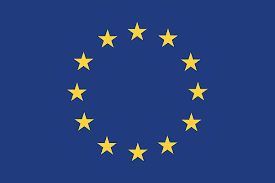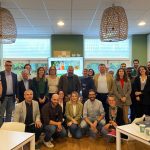ALTERNATIVE feeds Policy Session within the Green Deal Cluster – Health Working Group
ALTERNATIVE feeds Policy Session within the Green Deal Cluster – Health Working Group
On 11 September 2023, in Brussels, in a collaborative effort under Horizon 2020, the European Green Deal initiative held a workshop in Brussels, addressing key policy points in the areas of zero-pollution solutions and regulatory science. The workshop, attended by prominent policymakers and representatives from six projects funded by the EU, aimed to draft a joint policy brief highlighting progress and outlining specific policy action points.
Under Horizon 2020’s funding of €1 billion, two pivotal areas were targeted: “Innovative, systemic zero-pollution solutions to protect health, environment, and natural resources from chemicals” and “Fostering regulatory science to address combined exposures to industrial chemicals and pharmaceuticals.” From these, six projects – PROMISCES, SCENARIOS, ZeroPM, LIFESAVER, PANORAMIX and ALTERNATIVE, – received funding ranging from €15 million to €36 million.
Key Discussions and Outcomes:
Alternatives to Animal Testing (NAMs): The ALTERNATIVE partner Martin Paparella highlighted the current conflict between the Green Deal policy goals and the continued legal dependency of regulation on animal testing, the latter being in conflict with all three spheres of sustainability, i.e. the economic, ecologic and societal one. Consequently, experts delved into the question how to build confidence in NAMs and how to manage the transition to a new NAM based regulation. The discussion centered on the OECD’s evolving validation practices and projects were urged to align with the Commission’s roadmap for animal-free chemical safety assessments.
Chemicals and Safe and Sustainable by Design (SSbD): Also the application of the current SSbD concept is hampered by its dependence on animal testing in its first step. Discussions on how to advance SSbD highlighted the need for new types of data-streams including broader environmental impact and socioeconomic data requiring increased efforts for data sharing, as well as new concepts for defining socially essential uses and proactive risk management.
Risks (Hazard, Exposure) and Research Gaps: The need for efficient European-wide validation processes and enhanced collaboration among scientists, regulators, and policymakers emerged. Bridging communication gaps between researchers and policymakers was acknowledged as crucial, and the importance of actionable research data was stressed.
Policy Brief Scoping: The workshop identified NAMs and PFAS as frontrunners for the joint policy brief. The brief will focus on detailing the current policy approach, key findings from research, and policy recommendations. A writing team, led by Sarah Hale (ZeroPM), with core contributions from Martin Paparella regarding the science policy needs and options for NAMs (ALTERNATIVE) and Julia Hartmann (PROMISCES) as well as Iseult Lynch (SCENARIOS) was established to draft the policy brief. This core writing group aims to share a draft with policymakers around November.
Next Steps: Visuals in the policy brief are highlighted as essential to amplify the impact of collaborative efforts and this will be supported by LIFESAVER. The core writing team, comprising representatives from ZeroPM, PROMISCES, SCENARIOS, and ALTERNATIVE, will work closely with project officers to disseminate the policy brief at the Commission level.
For Further Information: Stay connected with Martin Paparella and Gianluca Giardelli for the latest updates on ALTERNATIVE’s significant contributions to the evolving European policy landscape.
Watch this space for more updates on how ALTERNATIVE continues to drive impactful policy changes in the realm of chemical safety assessments.
This article is authored by Martin Paparella.





